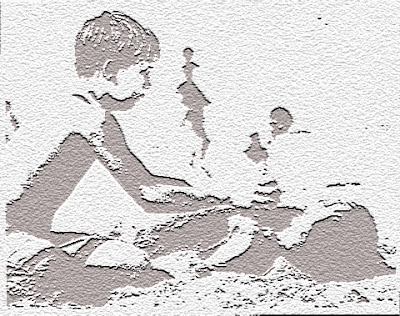Heretic is a dissenter,
nonconformist, apostate, freethinker, iconoclast, agnostic, atheist,
nonbeliever, unbeliever, idolater, idolatress, pagan, or heathen. A Heretic is a person holding an
opinion at odds with what is generally accepted. A Heretic is a person who
maintains beliefs contrary to the established teachings of the Church. A
heretic is someone whose beliefs or actions are considered wrong by most
people, because they disagree with beliefs that are generally accepted. A Heretic
is ridiculed and ostracized for ideas. A Heretic is a person who belongs to a
particular religion, but whose beliefs or actions seriously disagree with the
principles of that religion. A Heretic is a person who holds unorthodox
opinions in any field.
Heretics were
banished or put to death!
Heresy is any
belief or theory that is strongly at variance with established beliefs or
customs, in particular the accepted beliefs of a church or religious
organization. A heretic is a proponent of such claims or beliefs. Heresy is
distinct from both apostasy, which is the explicit renunciation of one’s religion,
principles or cause, and blasphemy, which is an impious utterance or action concerning
God or sacred things.
The term is
usually used to refer to violations of important religious teachings, but is
used also of views strongly opposed to any generally accepted ideas. It is used
in particular in reference to Christianity, Judaism, and Islam.
In certain
historical Christian, Islamic and Jewish cultures, among others, espousing
ideas deemed heretical has been and in some cases still is subjected not merely
to punishments such as excommunication, but even the death penalty.
The term “heresy”
is used not only with regard to religion but also in the context of political
theory.
In other
contexts the term does not necessarily have pejorative overtones and may even
be complimentary when used, in areas where innovation is welcome, of ideas that
are in fundamental disagreement with the status quo in any practice and branch
of knowledge.
Scientist/author
Isaac Asimov considered heresy as an abstraction, Asimov's views are in
Forward: The Role of the Heretic. Mentioning religious, political,
socioeconomic and scientific heresies. He divided scientific heretics into endoheretics
(those from within the scientific community) and exoheretics (those from
without). Asimov concluded that science orthodoxy defends itself well against endoheretics
(by control of science education, grants and publication as examples), but is
nearly powerless against exoheretics. He acknowledged by examples that heresy
has repeatedly become orthodoxy.
The term
heresy is also used as an ideological pigeonhole for contemporary writers
because, by definition, heresy depends on contrasts with an established
orthodoxy. Expanded metaphoric senses allude to both the difference between the
person’s views and the mainstream and the boldness of such a person in
propounding these views.
Religion is the
belief in and worship of a superhuman controlling power, especially a personal
God or gods. Religion is faith, belief, worship, creed, sect, church, cult,
denomination or a particular system of faith and worship. Religion is a pursuit
or interest to which someone ascribes supreme importance.
A religion may be defined as a cultural
system of designated behaviors and practices, world views, texts, sanctified
places, prophesies, ethics, or organizations, that claims to relate humanity to
supernatural, transcendental, or spiritual elements.
Different
religions may or may not contain various elements ranging from the divine,
sacred things, faith, a supernatural being or supernatural beings or ultimacy
and transcendence that will provide norms and power for the rest of life and
beyond. Religious practices may include rituals, sermons, commemoration or
veneration (of deities), sacrifices, festivals, feasts, trances, initiations,
funerary services, matrimonial services, meditation, prayer, music, art, dance,
public service, or other aspects of human culture.
Religions have sacred histories and
narratives, which may be preserved in sacred scriptures, and symbols and holy
places, that aim mostly to give a meaning to life. Religions may contain
symbolic stories, which are sometimes said by followers to be true, that have
the side purpose of explaining the origin of life, the universe, and other unknowns.
The study of
religion encompasses a wide variety of academic disciplines, including
theology, comparative religion and social scientific studies. Theories of
religion offer various explanations for the origins and workings of religion.
Traditionally,
faith is considered the source of religious beliefs.
Hypocrisy is the
practice of claiming to have moral standards or beliefs to which one’s own behavior
does not conform, pretense, dissimulation, false virtue, posturing,
affectation, speciousness, empty talk, insincerity, falseness, deceit,
dishonesty, mendacity, duplicity, sanctimoniousness, sanctimony, pietism,
piousness; phoniness or fraud.
Hypocrisy is
the contrivance of a false appearance of virtue or goodness, while concealing
real character or inclinations, especially with respect to religious and moral
beliefs; hence in a general sense, hypocrisy may involve dissimulation,
pretense, or a sham. Hypocrisy is the practice of engaging in the same behavior
or activity for which one criticizes another. In moral psychology, it is the
failure to follow one’s own expressed moral rules and principles. Increasingly,
since the 1980s, it has also become central to studies in behavioral economics,
cognitive science, cultural psychology, decision-making, ethics, evolutionary psychology,
moral psychology, political sociology and social psychology.
If one
question the teachings of a religion does that classify as heresy? If the
scriptures of a religion proclaim ‘thou shall not kill’ and yet endorses war’s
senseless murder in the name of the Lord, is that hypocrisy?
You decide.





























